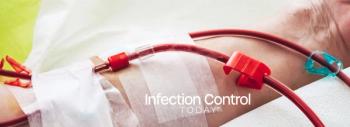
PPE Shortages Hamper COVID-19 Containment, Endanger Healthcare Workers
WHO's Tedros Adhanom Ghebreyesus, PhD, warns: “We can’t stop COVID-19 without protecting our health workers.”
There’s a dwindling supply of personal protective equipment
“We are concerned that countries’ abilities to respond are being compromised by the severe and increasing disruption to the global supply of personal protective equipment-caused by rising demand, hoarding and misuse,” Ghebreyesus said at a
PPE supplies need to be increased globally by 40% to meet the demand being driven by COVID-19, said Ghebreyesus. He added: “We can’t stop COVID-19 without protecting our health workers.”
That’s just one of the unique challenges COVID-19 presents that were enumerated by Ghebreyesus, in which he also underscored how COVID-19 differs from the flu. It’s more lethal, for one. About 3.4% those worldwide who’ve gotten COVID-19 have died. Seasonal flu kills about 1% of those infected. There’s no vaccine nor treatment for COVID-19, while there are for the flu. COVID-19 doesn’t transmit as easily as the flu does. “With influenza, people who are infected but not yet sick are major drivers of transmission, which does not appear to be the case for COVID-19,” Ghebreyesus said.
In addition, while they’re both respiratory diseases, COVID-19 seems to be more severe than flu. “While many people globally have built up immunity to seasonal flu strains, COVID-19 is a new virus to which no one has immunity. That means more people are susceptible to infection, and some will suffer severe disease.”
Perhaps most pertinent to the current situation, Ghebreyesus said that “we don’t even talk about containment for seasonal flu-it’s just not possible. But it is possible for COVID-19. We don’t do contact tracing for seasonal flu-but countries should do it for COVID-19, because it will prevent infections and save lives. Containment is possible.”
There are 90,893 reported cases of COVID-19 globally, and 3110 deaths. And 1848 cases of COVID-19 have been reported in 48 countries (not counting China, the epicenter of the disease), and 80% of the cases outside China have been reported in South Korea, Iran, and Italy. Twenty-one countries have reported 1 case, while 122 countries have reported no cases.
“The actions these newly-affected countries take today will be the difference between a handful of cases and a larger cluster,” Ghebreyesus said.
But the effectiveness of those actions hinges on the availability of PPE. “Shortages are leaving doctors, nurses and other frontline healthcare workers dangerously ill-equipped to care for COVID-19 patients, due to limited access to supplies such as gloves, medical masks, respirators, goggles, face shields, gowns, and aprons,” Ghebreyesus said.
Ghebreyesus also decried the
“WHO has shipped nearly half a million sets of personal protective equipment to 47 countries, but supplies are rapidly depleting,” said Ghebreyesus. “WHO estimates that each month, 89 million medical masks will be required for the COVID-19 response; 76 million examination gloves, and 1.6 million goggles.”
Ghebreyesus said healthcare workers, governments and others should consult the WHO
“We continue to call on manufacturers to urgently increase production to meet this demand and guarantee supplies,” Ghebreyesus said. “And we have called on governments to develop incentives for manufacturers to ramp up production. This includes easing restrictions on the export and distribution of personal protective equipment and other medical supplies.”
Newsletter
Stay prepared and protected with Infection Control Today's newsletter, delivering essential updates, best practices, and expert insights for infection preventionists.




